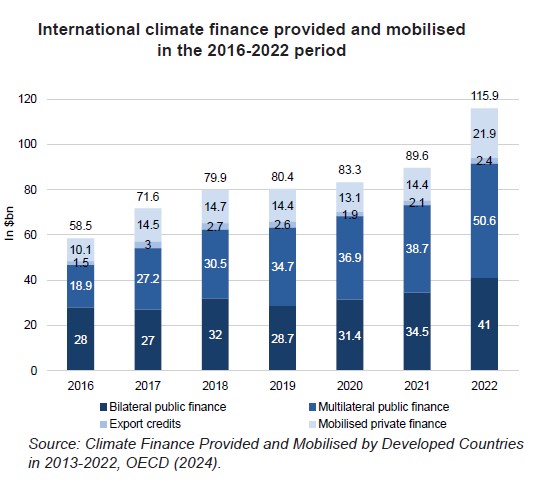French Public Climate Finance for Developing Countries: an Overview and the Issues at Stake
Limiting global warming to 1.5°C, as laid down in the Paris Agreement, and adapting to its impacts requires financing known as “climate finance”. Every year, France along with other developed countries provide this finance to developing countries to assist them in implementing this agreement and to attain the annual $100bn goal. This target, which ends in 2025, was renegotiated at COP29.
Together with other developed countries, France provides public finance to developing countries to assist them in implementing the Paris Agreement to mitigate climate change and adapt to its effects. In 2023, France provided €7.2bn to these countries in the form of loans, grants, equities and guarantees for their climate action.
France’s contribution helps to achieve the annual goal of mobilising $100bn for developing countries, set in 2009 at the 15th Conference of Parties (COP15) in Copenhagen. This goal was surpassed for the first time in 2022, with $115.9bn recorded by the OECD. France is one of the largest contributors among developed countries, and can be considered to provide more than its “fair share” in attaining this goal.
This public climate finance provided by developed countries is essential in certain regions and for certain investment types – particularly climate change adaptation investment. However, this financing only constitutes a minority share of climate finance in developing countries. The $100bn goal is set to be replaced in 2025 by another goal established in late 2024 at COP29 in Baku (Azerbaijan). This new goal is expected to mobilise even more public finance from even more countries, while also setting a bold target for private-sector finance, which is already significant but needs to be considerably ramped up.
